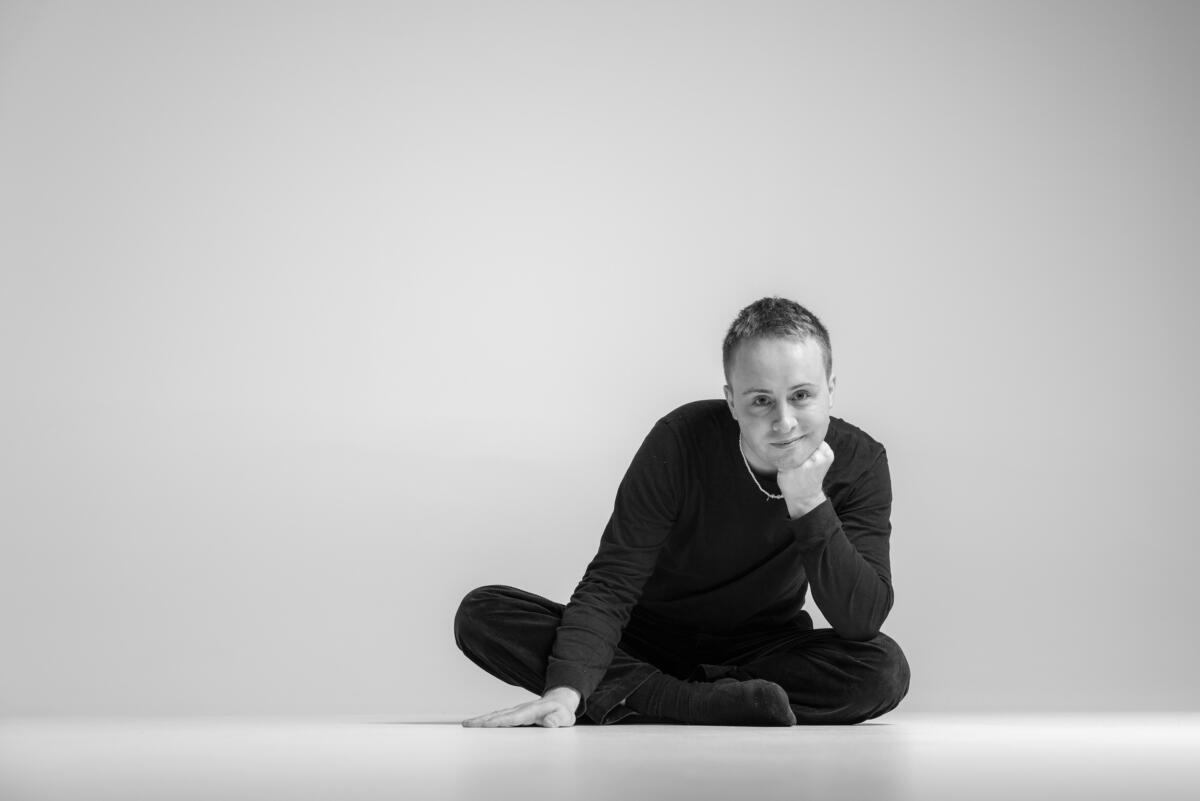Dance pedagogy student: The master’s programme allows us to explore different pedagogical approaches
Read an interview with Francis Maskens, who hails from the UK and started his studies in the master’s programme in dance pedagogy last year. He finds his studies offer fantastic opportunities to explore the various ways that dance can benefit our society.

Please tell us about yourself. How did you realise that you wanted to study at Uniarts Helsinki?
I am a performer, creator and teacher of dance from London. I have lived in Helsinki for three years. In 2017, I completed my BA in contemporary dance at London Contemporary Dance School, The Place. Since graduating, I have been performing as a freelance dance artist and teacher around Europe. Whilst studying and teaching, I have also been creating and performing work with my Finnish partner, dance artist Emilia Kallioinen. Together, we form a Helsinki-based duo called Kaamos Group.
I first heard of Uniarts Helsinki from friends who graduated from the master’s programme for dance pedagogy. It was clear that the course supported students as artists, through encouraging pedagogical development and their personal practices. I felt a need for a deeper understanding of what dance pedagogy could be, and in 2022, I applied to the master’s programme in dance pedagogy at Uniarts Helsinki. MA programmes in dance pedagogy are rare, so I was delighted to find a programme of such high quality.
Please tell us one thing you remember about your entrance examination.
I found the entrance examination process thoughtfully put together using pre-assignments, group tasks, discussions, and a presentation. The diversity of the process indicated to me that the course would be broad and deep in its coverage, which was exactly what I was looking for. Through the examination process, it was clear that the course would support the students and help them develop their own interests.
What has been the best thing about studying at Uniarts Helsinki and living in Helsinki?
Studying at Uniarts Helsinki is amazing. In addition to all the fantastic things that the dance pedagogy programme offers, there has also been opportunities to do optional studies. These have included fun experiences, such as hiking across fells in Lapland, performing for plants and learning to sing in Finnish. The programme has supported my own artistry and given me a deeper sense of what pedagogy can be. We are taught by a variety of lecturers, which deepens our education.
As for the city, Helsinki is a small capital on a European scale. I feel that Helsinki is one big community while London has many bubbles. Everyone on the Helsinki art scene knows each other. In my experience, the art scene is welcoming and offers support and opportunity to grow and develop within a caring arts community. The town has a buzzing, exciting underlayer and it is very easy to get around. If you need some space away from the studies, nature in Helsinki is always a stone’s throw away. During the winter, the city suddenly becomes very quiet after the active summer.
What is your most memorable study experience?
The programme consists of many excursions and projects in external settings such as public spaces and community centres. The study module called Teaching Practice 1 was especially exciting for me as it included developing personal practices for different audiences in Uniarts Helsinki and other places, as well as collaborating with peers. We did a workshop at a secondary school, and I think the teenagers really enjoyed it. We also did workshops and creations at a rehabilitation centre and in a library, which really helped us expand our practise in a new context.
What has been the most challenging thing about your studies?
The studies have challenged me to consider my approach to teaching. Instead of guiding me in one pedagogical direction, the programme has allowed me to explore different approaches. Studying in a new place can have its challenges. Staying open and curious in my studies as well as connecting with fellow classmates has helped me to adjust. In my experience, Finnish people may be quiet but very friendly. They find time for new people.
What do you dream of doing after you graduate?
My plan is to graduate next spring. I will continue developing my artistic practice and digest all I have learnt from the programme. I am writing my master’s thesis on how dance can benefit our educational systems and especially early childhood education. I am interested in how dance can help children’s development and learning. I would like to continue teaching and I am also interested in lecturing. I would like to continue to connect, discuss and learn from others.
What preconceptions did you have about Finland? What do you think about them now?
I became familiar with Finland and the Finnish culture through my Finnish partner and friends. I now see Finland as my home base and a place I hold dear.